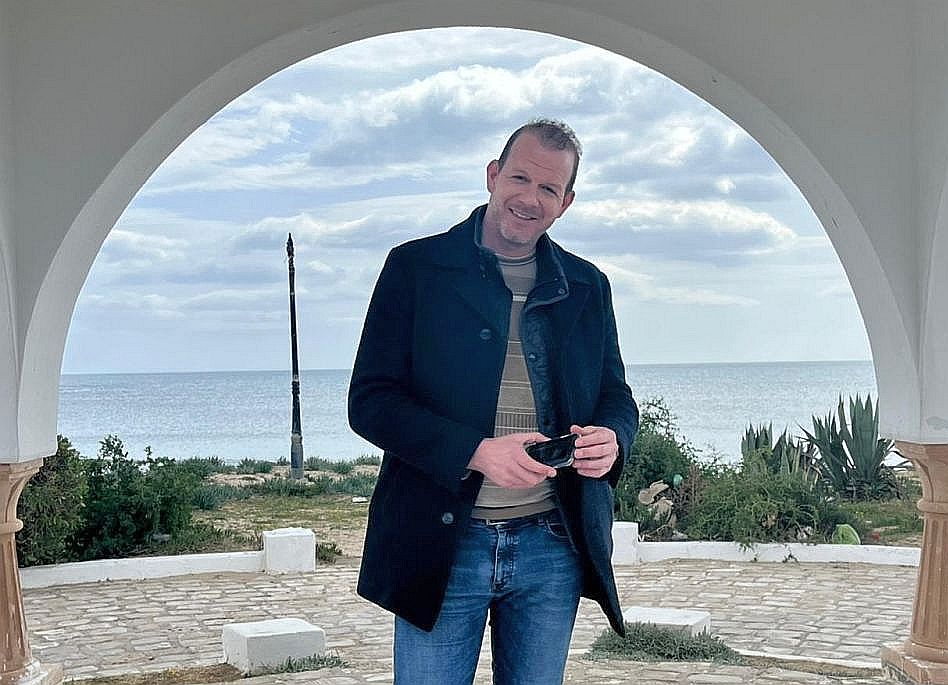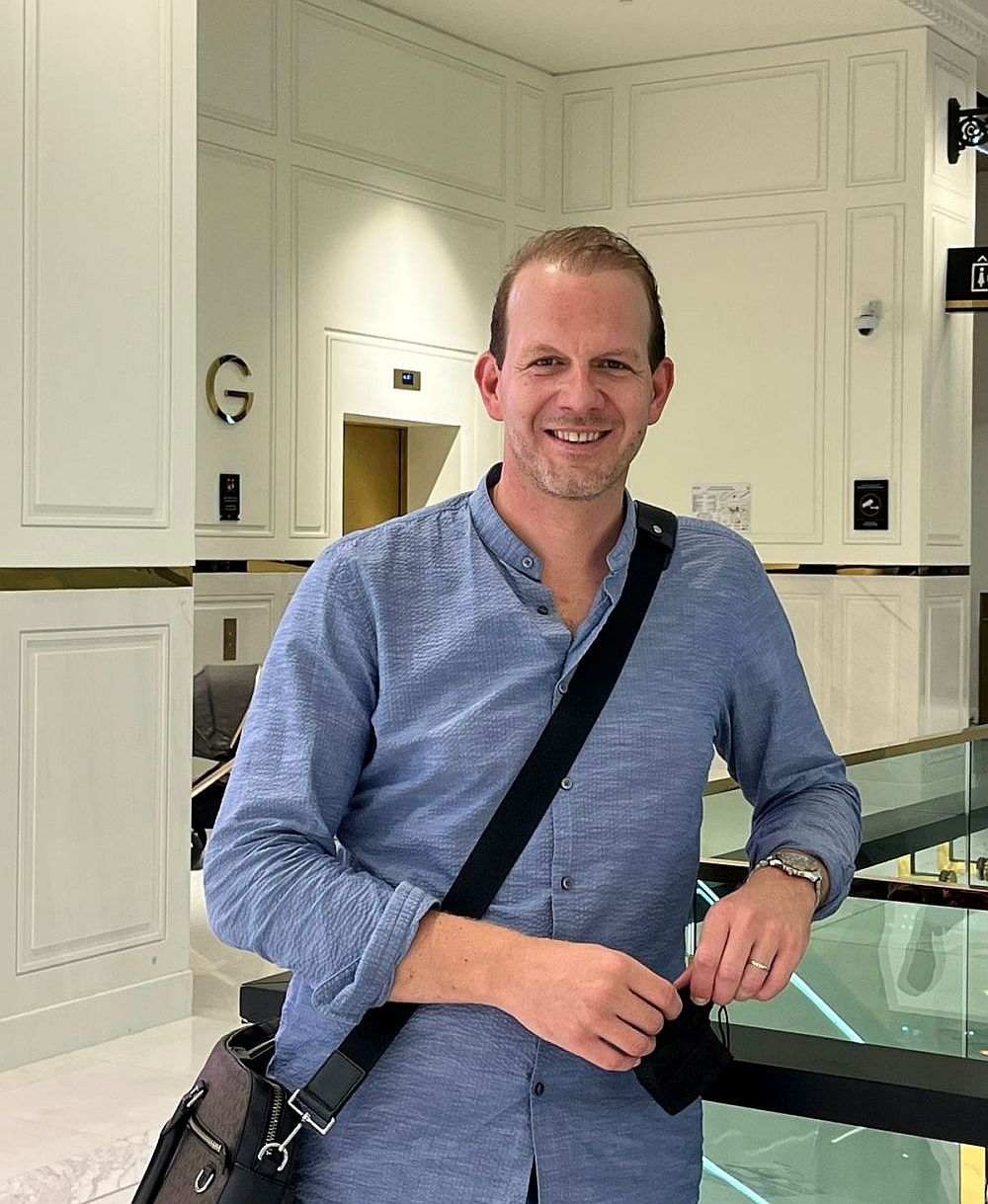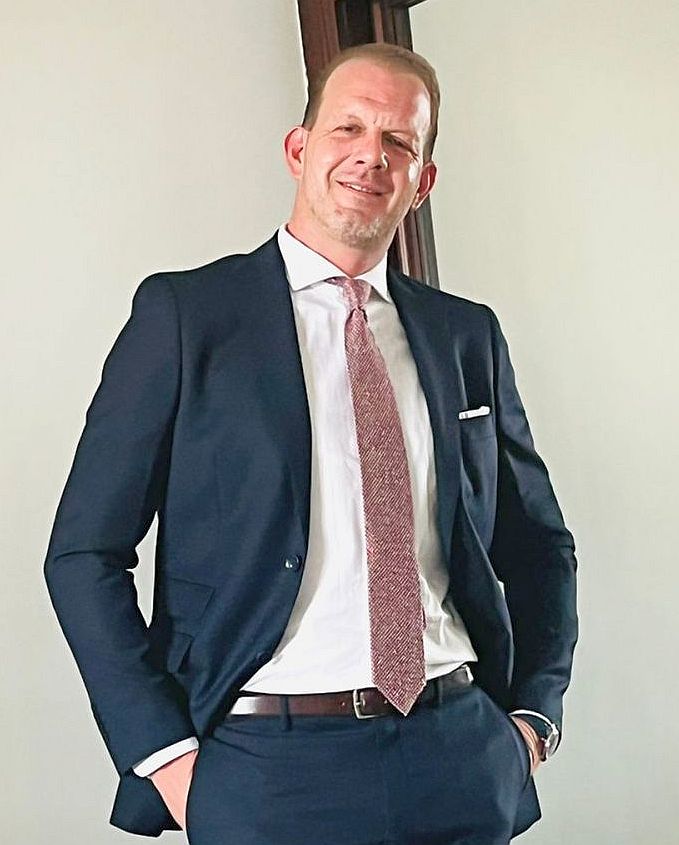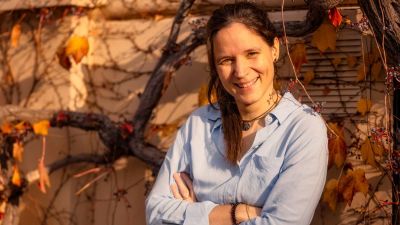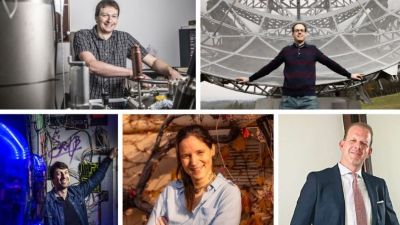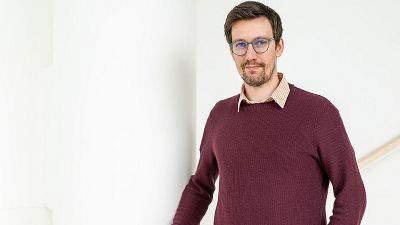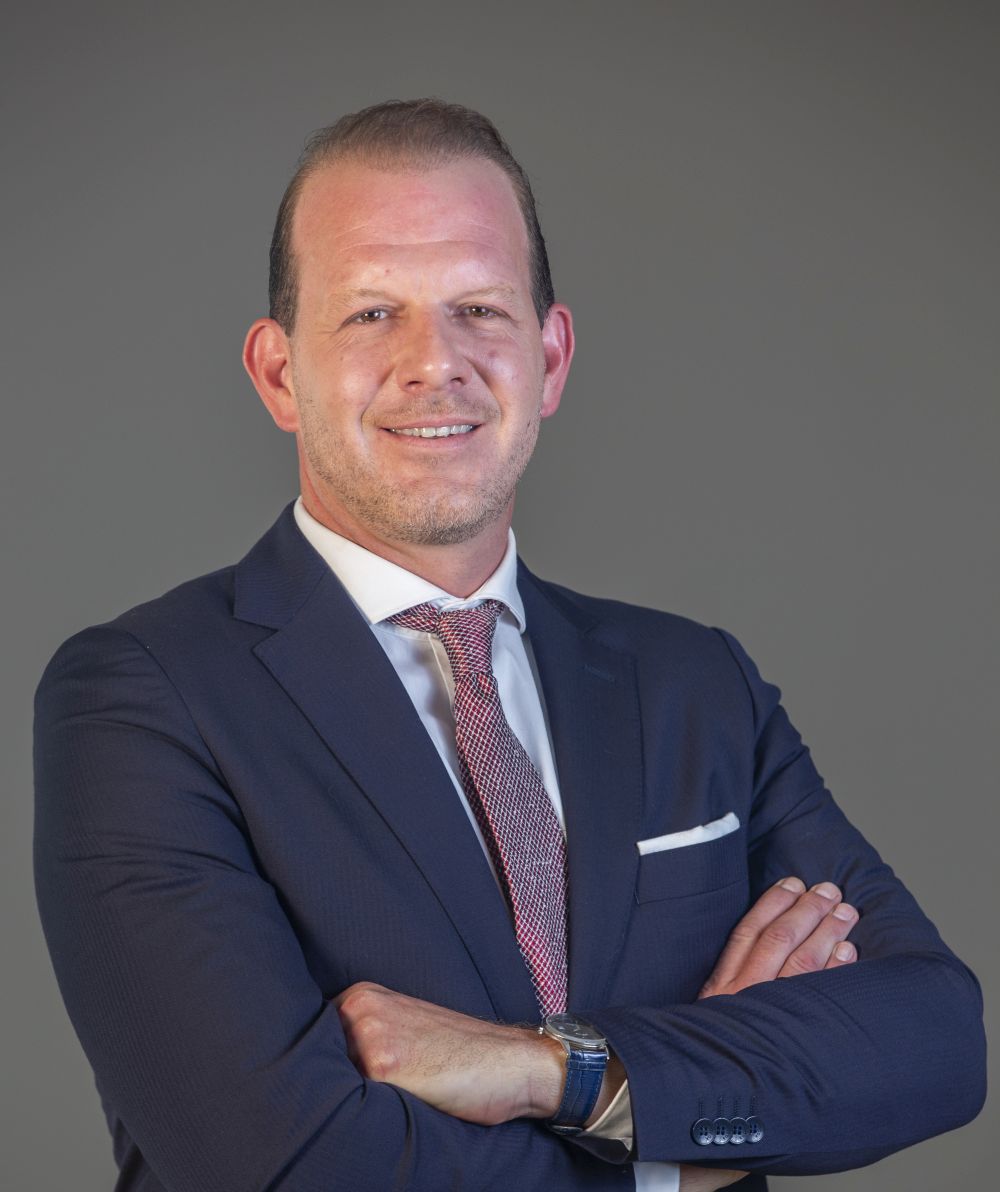 The interview was conducted remotely between Prague and Qatar. Tomáš Dumbrovský, a scholar at the Faculty of Law at Charles University, travelled to the Persian Gulf to step outside the cultural framework of Western thought. He specialises in constitutionalism, comparative constitutional law, and the rise of populism in Europe, North Africa, and the Middle East. His work aims to foster a pluralistic and more tolerant society in response. Dumbrovský is the first researcher from the Faculty of Law at Charles University to secure a prestigious Consolidator Grant from the European Research Council (ERC) to support his work.
The interview was conducted remotely between Prague and Qatar. Tomáš Dumbrovský, a scholar at the Faculty of Law at Charles University, travelled to the Persian Gulf to step outside the cultural framework of Western thought. He specialises in constitutionalism, comparative constitutional law, and the rise of populism in Europe, North Africa, and the Middle East. His work aims to foster a pluralistic and more tolerant society in response. Dumbrovský is the first researcher from the Faculty of Law at Charles University to secure a prestigious Consolidator Grant from the European Research Council (ERC) to support his work.
What are the primary topics you explore in your research?
I’ve undergone a gradual evolution in my work. As a student, I focused on European law, which coincided with the Czech Republic's entry into the European Union. Concurrently, I studied political science at Charles University’s Faculty of Social Sciences, which led me to delve into European constitutional law and the Court of Justice of the European Union (ECJ)—not just from a judicial standpoint but also as an institutional entity. During my doctoral studies, I decided to compare the ECJ with the U.S. Supreme Court, which introduced me to comparative constitutional law, a field I’ve pursued ever since.
Over time, I realised that remaining in one cultural environment was insufficient to understand why constitutional institutions operate as they do within the framework of liberal constitutionalism. This realisation sparked my interest in the Middle East and North Africa (MENA) region. In these countries, Islam is incorporated into their constitutions in various ways, posing challenges for constitutional courts. This eventually led me to my current project.
When did the central idea for your project, Community Through Constitution: Researching How Constitutions Construct Identity and Legitimacy in Europe and MENA, begin to take shape?
The project began to form several years ago. In 2017, I was among the first recipients of the Primus Grant from Charles University. This institutional support helped researchers assemble teams and increase their competitiveness against Western universities with larger research infrastructures and highly experienced teams.
Subsequently, I applied for an ERC Consolidator Grant and reached the interview stage. Although my project wasn’t funded then, I secured an ERC CZ grant, enabling me to develop part of the original project and prepare a stronger application for the next round. By demonstrating the project's feasibility and innovation, I succeeded this time.
Could you elaborate on your project?
My project responds to the rise of populism. Ten years ago, populism might have seemed like a transient anomaly, but today, it’s a persistent phenomenon. Economic crises in Europe and the Arab Spring triggered societal shifts that fuelled populism. Populist parties are winning democratic elections worldwide, a trend we must study to understand.
By comparing two cultural spheres, we aim to uncover the core issues and potential solutions. We propose fostering constitutional discourse to form collective identities that integrate global human rights norms with local cultural traditions. This process, which we call identity constitutionalism, can lead to a more pluralistic, tolerant society and greater systemic stability.
Your research spans a wide geographic area, from Europe to North Africa and the Middle East. Are researchers from these regions involved in your project?
We focus on four countries in Europe (Czech Republic, France, Germany, and either Poland or Hungary) and four in the MENA region (Egypt, Lebanon, Tunisia, and Turkey). Our team is interdisciplinary and multilingual, as we need experts who can analyse primary sources in the native languages of these countries.
Additionally, we require expertise across disciplines. For instance, we have specialists in European and MENA constitutionalism, a political philosopher, and a political scientist responsible for empirical methods. We also employ machine learning to analyse discourses, necessitating a data science specialist.
How challenging is it to assemble such a diverse team?
We built the core team during a pilot project, but we need to expand it now. Recruiting experts is challenging. In the past, I conducted a global recruitment process and selected individuals I hadn’t worked with before. Many team members are from abroad, so I must offer them conditions that justify relocating.
In social sciences and humanities research, team composition is critical. I need highly skilled experts in both technical and linguistic areas, which is a considerable challenge. I also aim to involve PhD candidates specialising in the application of machine learning in law.
As the first successful ERC grant recipient from the Faculty of Law at Charles University, do you have any advice for colleagues seeking such competitive funding?
The key is to step outside the Czech Republic and spend substantial time abroad during doctoral and postdoctoral studies. Engaging with other disciplines is also crucial, as remaining in one intellectual bubble limits one’s ability to address core problems.
ERC committees value innovative proposals that offer entirely new perspectives. Particularly in social sciences, it’s essential to step beyond current discourse to propose fresh solutions.
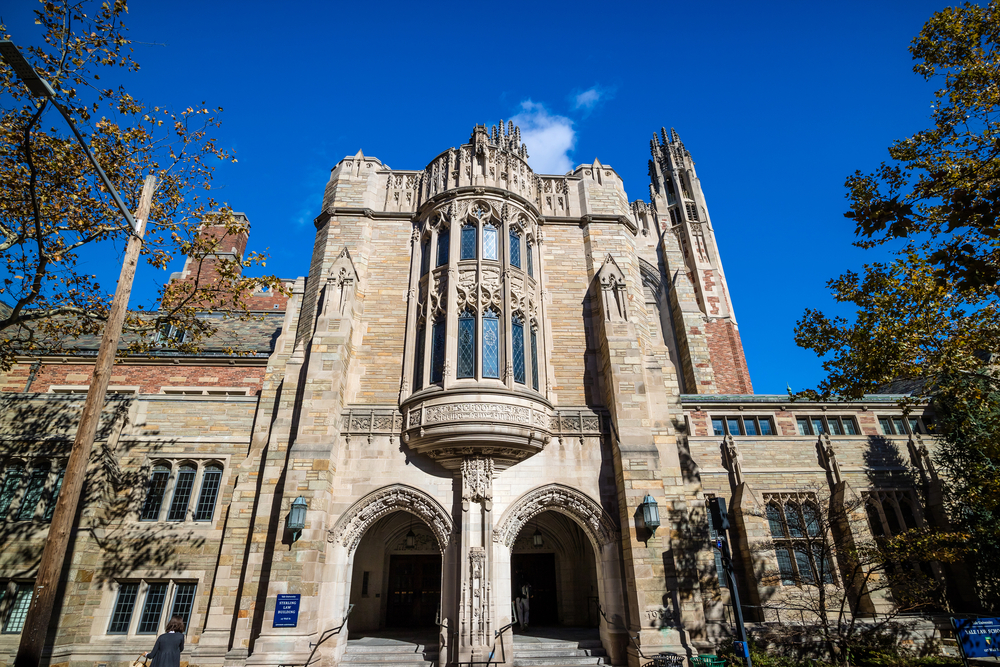 You have accumulated an impressive breadth of experience through study and research stays at various institutions and across continents. Which of these experiences transformed you the most?
You have accumulated an impressive breadth of experience through study and research stays at various institutions and across continents. Which of these experiences transformed you the most?
To get into the best institutions, you need to work your way up step by step. While it’s possible to be admitted to Oxford or Harvard straight after your master’s, I believe you stand a better chance if you accumulate more, even shorter, stays during your academic journey. Admissions committees tend to value this positively.
For me, the most transformative experience was definitely my time at Yale Law School, although it was a journey to get there. Before that, I spent nearly a year at the Max Planck Institute in Heidelberg, which focuses on European and international law. I collaborated on grants with various universities and gradually built my profile to qualify for the LL.M. program at Yale Law School, where I eventually completed my doctorate. My research was centred on the early stages of European constitutionalism, which also required me to spend considerable time at the European University Institute in Florence. This institute specialises in doctoral and postdoctoral studies and houses the primary archives of the European Union, which I utilized extensively.
The foundation of these experiences was interaction with extraordinary individuals working at these institutions. I was fortunate to collaborate from the very beginning with Professor Bruce Ackerman at Yale. Over the ten years I spent traveling between Florence and New Haven, we maintained a close professional relationship.
I even have a story about deciding which courses to take as part of the LL.M. program. At Yale, there are no “core” foundational courses you are required to take. Instead, each professor offers their own unique classes presenting their theories, and you essentially pick the best options, like choosing from among items in a bakery window or display.
Coming from a Czech academic background, I initially thought I needed to focus strictly on courses related to my field of interest and specialise as deeply as possible. I prepared what I thought was a highly sophisticated schedule of courses that I believed would advance my work. I showed this plan to Professor Ackerman, and he told me it was nonsense. He said I shouldn’t think that way and should instead focus on taking the “cherries on top” – the courses taught by big names, whether in philosophy or law.
So, I ended up selecting courses that, from the perspective of my research, were quite unrelated. However, I have to say that this approach opened my eyes because it introduced me to an entirely new world.
It was a similar experience at the European University Institute, which operates in much the same way. There, I encountered many people who helped me advance my thinking in various ways.
How does your research benefit from your affiliation with the Doha Institute for Graduate Studies? Has your long-term stay in the Persian Gulf influenced your perspective?
It was a planned decision because I wanted to understand how constitutionalism functions outside the cultural framework of Western thought. I knew that to engage with this topic seriously, I needed to be situated directly in the region, which is not easy given its political instability. In some countries, it can be challenging to ask people about their views on their government. During the ERC CZ project, we conducted qualitative research across various countries. We collected 450 interviews, but in Egypt, for instance, people were reluctant to speak freely because they feared the interviewer might be working for intelligence services. We later found that replacing the Egyptian moderator with a Tunisian one resulted in more authentic responses from participants.
I needed to establish a base in the region where I could conduct my research. Doha turned out to be one of the best options because Qatar has long invested in education. As a result, a cluster of American and French universities have opened campuses there, attracting both students and academics. This has created a unique environment and a community of experts from various fields, all focusing on the region from different perspectives. Additionally, there are students from the region I am studying, which is crucial for understanding the local mindset in terms of politics and constitutional dimensions.
From a Western perspective, certain aspects of the region I study are challenging to grasp. For example, some lower court decisions in Egypt are still handwritten. Even finding a basic database is a significant challenge, whereas in Germany, most court decisions are available online and translated into English.
The issues we study manifest at the most fundamental levels. For instance, Tunisia is the only country in the region where the constitution explicitly allows a woman to marry a non-Muslim. In other countries, the prospective husband must first convert to Islam. However, upon closer examination, you find that despite the constitutional provision, some regions in Tunisia still refuse to perform such marriages because they argue that the husband would be unable to guarantee raising the children in accordance with Islamic principles. In our research, we need to delve into this level of legal application, which can be particularly challenging due to limited access to resources.
This is why having direct contacts in the region is so important. I was fortunate that the Doha Institute for Graduate Studies provided me with this base, enabling me to better understand the region.
You mentioned Lebanon as a focus country. Given its political and economic turmoil, is research there feasible?
The situation in Lebanon poses significant challenges, particularly due to the ongoing conflict between Israel and Hezbollah. However, Lebanon’s unique pluralistic society, with its three religious-ethnic groups cooperating politically, makes it an ideal case study for our theory of collective identity grounded in constitutional values rather than religious or ethnic affiliations. We hope to continue working there despite the difficulties.
| Tomáš Dumbrovský, PhD |
|
He is a graduate of the Faculty of Social Sciences at Charles University, where he studied political science and international relations. Additionally, he graduated from the Faculty of Law at Charles University, where he also defended his dissertation. He completed an LL.M. program at Yale Law School in the United States, where he later pursued a second doctoral degree. As a postdoctoral researcher, he spent time at the European University Institute in Italy and the University of Amsterdam. He also gained experience through academic and research stays at the University of Michigan Law School and the Max Planck Institute in Heidelberg.
His research focuses on constitutionalism and comparative constitutional law. At the Faculty of Law at Charles University, he heads the Institute for Interregional Studies of Constitutionalism. In 2017, he was among the first successful applicants for the Primus Grant, introduced by the Charles university that year to support promising researchers in developing their scientific projects and building research teams. In 2021, he received an ERC CZ grant from the Czech Ministry of Education, Youth, and Sports, awarded to applicants whose projects received high evaluations from the European Research Council (ERC) but were not funded due to budget constraints. This December, he became the first researcher at the Faculty of Law at Charles University to secure an ERC Consolidator Grant.
He has been a long-term visiting researcher at the Doha Institute for Graduate Studies in Qatar, which has significantly influenced his research on how constitutions shape the collective identity of populations in Europe, North Africa, and the Middle East. This subject will also be the focus of his ERC-supported project. |


